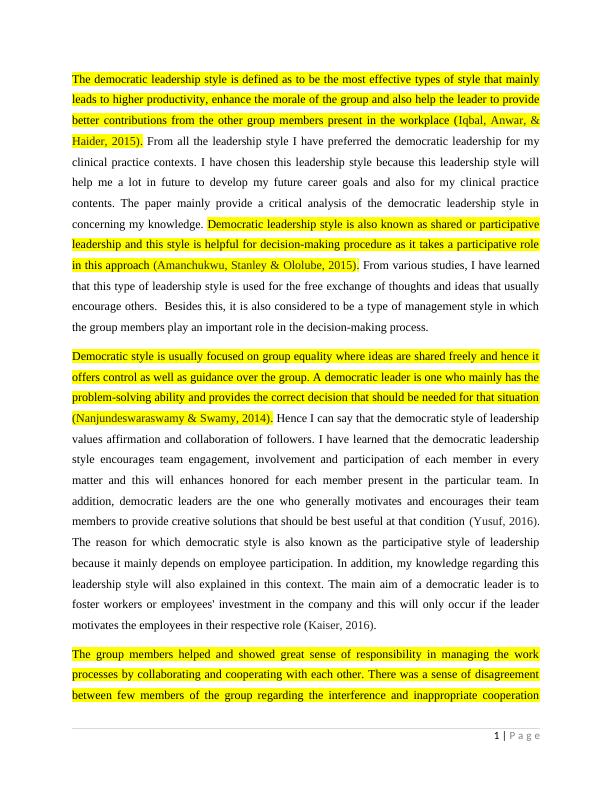Critical Reflection on the Effectiveness of Democratic Leadership Style in Clinical Practice
Added on 2023-06-03
4 Pages1332 Words470 Views
End of preview
Want to access all the pages? Upload your documents or become a member.
Examination of Leadership Style
|7
|715
|211
Reflection on Leadership
|9
|2719
|262
Democratic Leadership and Clinical Professionals
|6
|1016
|418
Leadership
|8
|1729
|205
Democratic Leadership in Clinical Practices
|6
|1366
|88
MY MANAGEMENT AND LEADERSHIP PHILOSOPHY
|4
|663
|20

